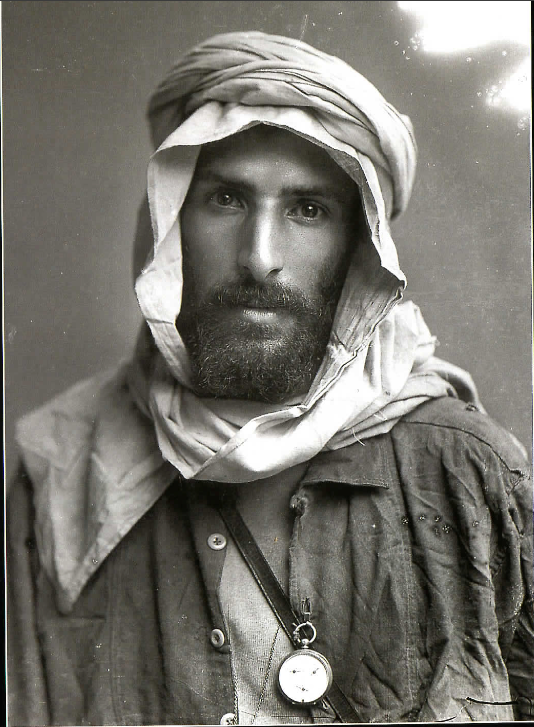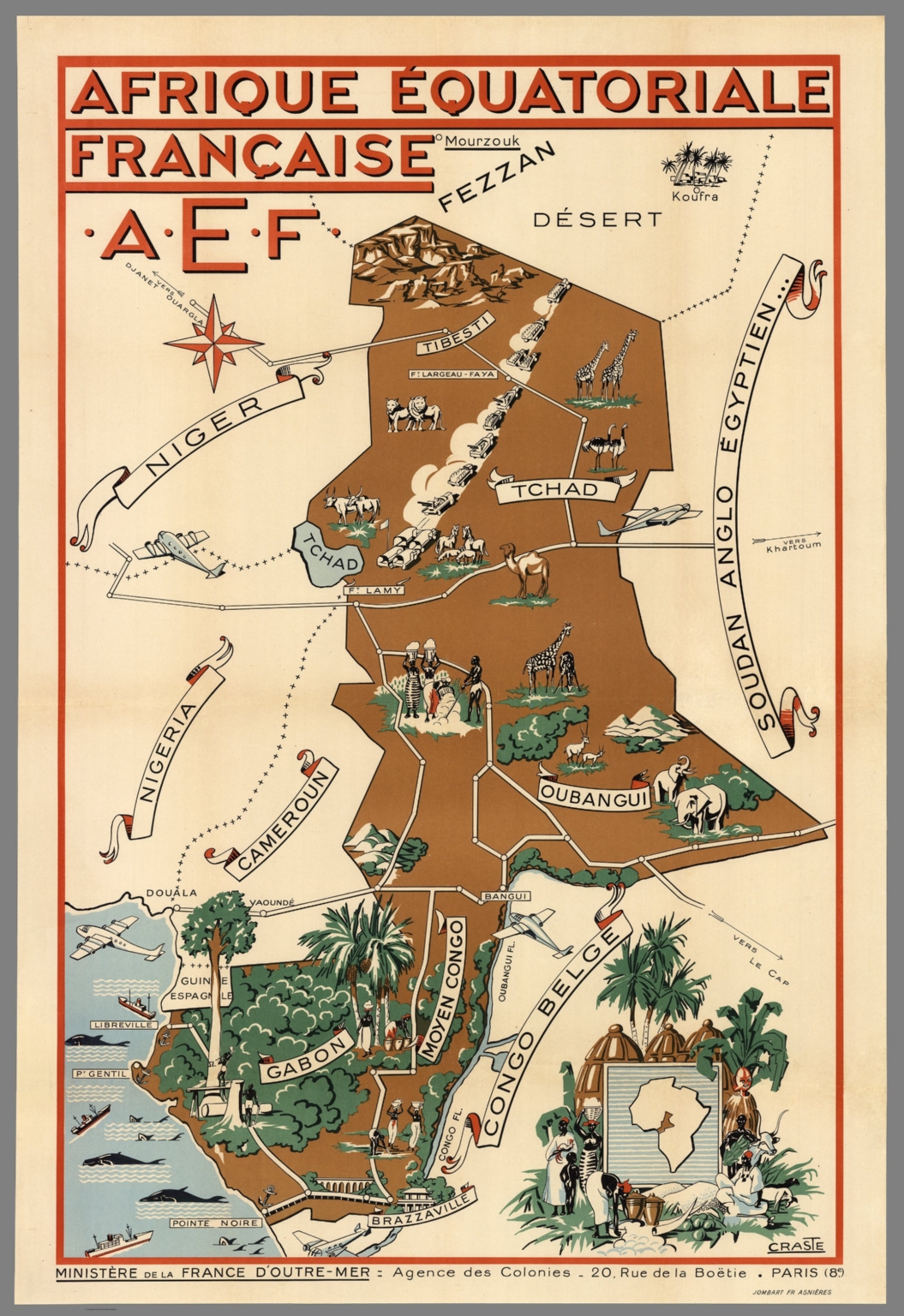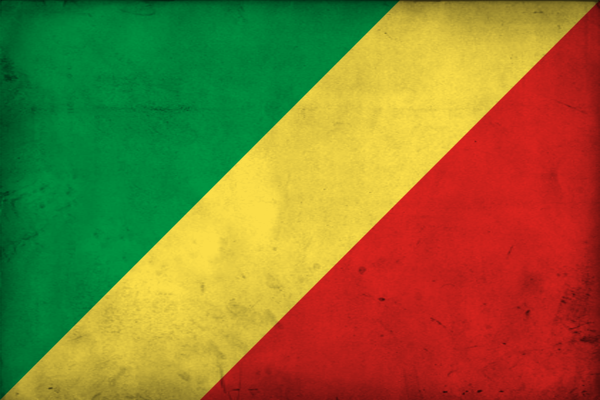1. Brazzaville
The capital of Republic of the Congo is Brazzaville, which is named after an Italian explorer and freemason, Pierre Savorgnan de Brazza. He was born in the Papal states but he naturalized as a Frenchman adopting the French spelling of his name instead of his Italian birth name Pietro Paolo Savorgnan di Brazza.
The city of Brazzaville was established in the beginning of the 1880s by Count de Brazza. Pierre signed a treaty with the leader of the local Bateke tribe. This was the beginning of the French settlement in Central Africa.
Brazzaville was one of the center points of traffic in the French African colonies. Goods were transported by ships along the Congo river to the railway, which passed through the Livingstone falls to the coast at Pointe-Noire. Over 20,000 people died constructing this 510 km long railway. Congo gets revenue still operating the transit traffic and the Manganese Ore transportations from Gabon.
 |
| Pierre Savorgnan de Brazza |
 |
| Brazzaville |
In 1884 the French rule in Congo was confirmed in the Berlin Conference.
In 1908 France created French Equatorial Africa
Parts of French Equatorial Africa:
1. Middle Congo = Congo
2. Oubangui-Chari = Central African Republic
3. Chad
4. Gabon
In the 1920s l'A.E.F, Society Amicable des Originaires was established to fight against colonialism and its aim was to get all the people of French Equatorial Africa the right for French citizenship.
In 1958 the French Equatorial Africa was dissolved into four autonomic parts.
In 1960 Congo gained independence.
 |
| French Equatorial Africa |
3. President Denis Sassou-Nguesso
The current president Denis Sassou-Nguesso has now in the year 2015, ruled Congo 26 years of the past 36 years. Sassou-Nguesso gained power in the year 1977 when the previous president Marien Ngouabi was murdered after internal unrests in Congo. Sassou-Nguesso invested in basic education and healthcare, but otherwise he drove the country towards bankruptcy. The foreign debt was exploding and the primitive agriculture forced the country export all the food.
In 1992 Sassou-Nguesso lost the first multiparty elections to Pascal Lissouba. The country went into civil war and in 1997 Sassou-Nguesso returned in power with the help of his "Cobra-troops" and the Angolan army. Brazzaville was ruined in the fights and over 300,000 people became refugees. Since then Sassou-Nguesso has been in power and he has ensured that he will win all the elections.
4. Natural Resources
In the past the French oil company Elf got the exclusive right to drill oil in Congo. The unfavorable contract benefitted only the French and president Sassou-Nguesso and his inner circle. Congo has large natural resources including natural gas, diamonds, gold, phosphate and iron deposits. The population hasn't had the chance to enjoy the wealth of their land due to the political problems in the country. Congo was also accused of exporting diamonds that were smuggled out of the neighboring Democratic Republic of Congo.
The current president Denis Sassou-Nguesso has now in the year 2015, ruled Congo 26 years of the past 36 years. Sassou-Nguesso gained power in the year 1977 when the previous president Marien Ngouabi was murdered after internal unrests in Congo. Sassou-Nguesso invested in basic education and healthcare, but otherwise he drove the country towards bankruptcy. The foreign debt was exploding and the primitive agriculture forced the country export all the food.
In 1992 Sassou-Nguesso lost the first multiparty elections to Pascal Lissouba. The country went into civil war and in 1997 Sassou-Nguesso returned in power with the help of his "Cobra-troops" and the Angolan army. Brazzaville was ruined in the fights and over 300,000 people became refugees. Since then Sassou-Nguesso has been in power and he has ensured that he will win all the elections.
 |
| Denis Sassou-Nguesso |
4. Natural Resources
In the past the French oil company Elf got the exclusive right to drill oil in Congo. The unfavorable contract benefitted only the French and president Sassou-Nguesso and his inner circle. Congo has large natural resources including natural gas, diamonds, gold, phosphate and iron deposits. The population hasn't had the chance to enjoy the wealth of their land due to the political problems in the country. Congo was also accused of exporting diamonds that were smuggled out of the neighboring Democratic Republic of Congo.
 |
| French oil company Elf |
- 62 Spoken languages in total
- French is the only official language, Kituba and Lingala are the two recognized regional languages
- Majority of the people belong to the four Bantu tribes:
1. Kongos from the south (48%)
2. Sangha from the north (20%)
3. Bateke from the central parts (17%)
4. Mbochi from the central parts (12%)
- There are still about 10,000 pygmy people inside the impenetrable rainforests living in isolation
1482 The Portuguese are the first Europeans at Congo River. Christian missions were started at the area but soon the slave traders arrived as well
1880s French Count Pierre Savorgnan de Brazza establishes the city of Brazzaville close the Livingstone falls
1884 The French rule in Congo is confirmed in the Berlin Conference
1908 Congo, Gabon, Central African Republic and Chad are united into the French Equatorial Africa
1920s A.E.F the Society Amicable des Originaires is established to resist colonialism
1958 French Equatorial Africa is separated into four autonomic parts
1960 Congo becomes independent
1963 First president Filbert Youlou is overthrown in a coup
1968 Marien Ngouabi takes the power and declares Congo as a peoples republic
1977 During the internal unrests Ngouabi is murdered and Denis Sassou-Nguesso gained the power
1980s Congo started liberating the economy and the political opposition was allowed to operate in the country
1992 First multiparty elections, which Pascal Lissouba won against Sassou-Nguesso
1997 Denis Sassou-Nguesso returned into power with the help of the Cobra troops and the Angolan army
2002 Pascal Lissouba isn't allowed to participate the elections
2009 Opposition unwilling to participate the elections
Sources:
"Maailman maat liput ja historia" by Kimmo Kiljunen
https://en.wikipedia.org/wiki/Republic_of_the_Congo
https://en.wikipedia.org/wiki/Pierre_Savorgnan_de_Brazza
https://en.wikipedia.org/wiki/French_Equatorial_Africa


No comments:
Post a Comment